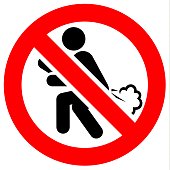South Africa A Surge In Xenophobia Leads to Violence
Ask Mario Khumalo to explain South Africa’s crime rate or its economic troubles, and he has an answer that sounds like a Donald Trump talking point: There are too many foreigners.
“We have allowed in criminals and former child soldiers. The government has failed to protect its own people,” the 37-year-old said in a phone interview. Khumalo has launched a new political party called South Africa First, promising mass deportations of immigrants and “strict vetting.”
In recent days, with a rise in xenophobic violence and demonstrations, it appears his platform has found broader appeal.
About 2.2 million immigrants live in South Africa, according to the last census, the majority from other African countries such as Zimbabwe, Mozambique, Lesotho, Nigeria and Somalia. Many migrants lack official documentation and are working in the country illegally. Since Nelson Mandela’s election in 1994, the country has been seen as a beacon for migrants fleeing war and poverty in other parts of the continent.
But as South Africa has struggled with poverty and crime, migrants have increasingly found themselves in the crosshairs, blamed for stealing jobs and committing crimes. The unemployment rate in the country is more than 30 percent.
On Friday, protesters marched through the capital, Pretoria, calling on the South African government to take a stronger stance against illegal immigration. In one part of the city, protesters appeared to lunge at a group of immigrants, with police officers firing rubber bullets to separate the two groups.
The mayor of nearby Johannesburg’s largest city, spoke out against the incident.
“I would like to again reiterate my deep concern for the flare up of xenophobic violence in parts of Gauteng,” Mayor Herman Mashaba said.
In the days before the protest, residents distributed fliers around parts of Pretoria.
“Nigerians, Pakistanis, Zimbabweans etc bring nothing but destruction; hijack our buildings, sell drugs; inject young South African ladies with drugs and sell them as prostitutes,” the fliers said, according to the Daily Maverick newspaper.
Friday’s demonstration came days after more than 30 foreign-owned shops across Pretoria were looted. Since the beginning of the year, at least 14 Somalis have been killed in South Africa, according to the Somali Community Board of South Africa.
Khumalo, a former account manager at an electronics company, says many South Africans are getting tired of the way the country serves as a magnet for the downtrodden, even as South African citizens are struggling to get by. He is still deciding what positions his party will pursue in future elections.
“People come here because they think South Africa is the land of milk and honey but it’s still a country where people are living without flushing toilets,” he said.
Khumalo, who lived in the United States for 11 years, says his focus on protecting South Africa’s borders wasn’t inspired by Trump, even if their campaigns show similarities.
“We’ve been struggling with immigration since long before anyone here ever heard of Donald Trump,” he said.
South African economists have said that foreign workers have a small impact on employment in the country, making up around 4 percent of the workforce. But for years both aspiring politicians and government officials have directed their anger at immigrants.
On Thursday, protesters in Nigeria’s capital city of Abuja, responding to the string of xenophobic incidents in South Africa, attempted to storm the office of South African mobile phone company MTN. On Friday, the office remained closed and surrounded by police, according to reports.
South African leaders meanwhile tried to distance themselves from the demonstrations in Pretoria.
“Violence has no place in our country, where we strive to promote peaceful coexistence between all those who reside within our borders,” Zizi Kodwa, a spokesman for South Africa’s ruling African National Congress party,
In South Africa, A surge In Xenophobia Leads To ViolenceSouth Africa’s bouts of xenophobia fly in the face of competing efforts to increase unity across the continent. The African Union last year proposed an “African passport” that would allow visa-free access across its 54 member states. But disputes between African nations and an anti-immigrant sentiment in places like South Africa and Kenya make its implementation unlikely.



